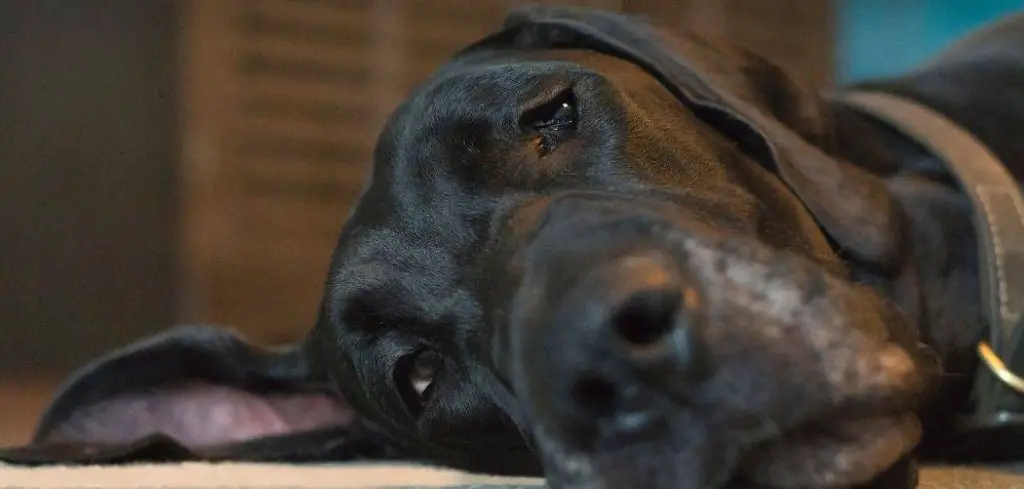A dog breathing fast with no other symptoms can be confusing and concerning for any owner. Rapid breathing can sometimes be normal, but it can also signal an underlying health issue that requires attention.
We outline the possible causes of a dog’s fast breathing with no other symptoms, what you can do at home, and when to seek veterinary help.
Table of Contents
Dog Breathing Fast No Other Symptoms — Why It Happens
Fast breathing in dogs may arise from both harmless and serious conditions. Dogs may breathe quickly due to stress, anxiety, heat, or recent exercise. However, issues like respiratory illness, heart disease, anemia, or even pain can also trigger rapid breathing even when no other signs are obvious.
Understanding the context and frequency of the breathing pattern is key to knowing whether to worry.

Dog Breathing Fast No Other Symptoms: Possible Causes
Exercise or Excitement
One of the most common causes of fast breathing is simple excitement or physical activity.
A dog may continue to breathe rapidly for several minutes after playing, running, or getting excited.
This type of fast breathing usually resolves on its own. The breathing should slow once the dog relaxes, and the pet should otherwise appear normal, with no weakness, coughing, or lethargy.
Read more: Old Dog Breathing Heavy and Not Eating (Here’s why)
Heat and Panting Regulation
Dogs regulate their body temperature primarily through panting. A dog breathing fast with no other symptoms may simply be cooling down, especially if the environment is warm.
Unlike humans, dogs do not sweat much, so panting is their primary cooling mechanism. This becomes more noticeable in hot weather, after outdoor play, or in brachycephalic breeds like Bulldogs and Pugs.
Stress and Anxiety
Emotional states can lead to rapid breathing in dogs. If a dog is nervous about car rides, thunderstorms, or separation, it may breathe quickly even if there are no obvious health concerns.
This type of fast breathing often resolves once the stressor is removed. Owners may also notice pacing, whining, or restlessness alongside the quick breathing.
Respiratory Conditions
Even without coughing or sneezing, some respiratory conditions may cause rapid breathing. Infections, inflammation, or airway obstruction can lead to shallow, fast breaths.
Because the body is trying to compensate for reduced oxygen exchange, the dog breathes faster to meet its needs. Owners may notice subtle changes like nostril flaring or shallow chest movement.
Heart Disease
Heart issues can sometimes present with fast breathing as one of the first signs. The heart struggles to pump blood efficiently, which reduces oxygen delivery to the body.
A dog may appear otherwise normal, but the elevated respiratory rate can signal early cardiac concerns. Over time, other symptoms such as coughing, fatigue, or fainting spells may appear.
Anemia
When a dog has fewer red blood cells or reduced hemoglobin, its body struggles to deliver oxygen effectively. To compensate, the dog may breathe rapidly even when resting.
This type of breathing is often overlooked because no other symptoms may be obvious at first.
Anemia can result from internal bleeding, parasites, or chronic disease, making veterinary evaluation important.
What to Do If Your Dog Is Breathing Fast With No Other Symptoms
If a dog is breathing fast with no other symptoms, first consider the context. Has the dog been exercising or is the environment warm? In these cases, the breathing should normalize within minutes.
Create a calm, cool space and provide fresh water. Monitor the dog closely to see if the breathing slows. If stress or anxiety seems to be the trigger, offering comfort, distraction, or a quiet space may help.
Track how often the fast breathing occurs and whether it appears at rest or during activity. Recording a short video can help your vet better understand the situation.
If the rapid breathing persists, occurs at night, or seems unrelated to activity or heat, it is best to consult a veterinarian.
When to Call or Visit Your Vet
Seek immediate veterinary attention if the fast breathing does not slow down after rest or cooling. Rapid breathing that occurs while sleeping or resting indoors is more concerning than panting after play.
If your dog develops additional symptoms such as coughing, wheezing, pale gums, weakness, or collapse, do not wait—contact your vet urgently.
Even if there are no other obvious signs, consistently fast breathing at rest may indicate an early heart, lung, or blood-related condition that should not be ignored.
Read more: Dog Coughing No Other Symptoms (When it’s harmless and when it’s not))
Key Takeaway
A dog breathing fast with no other symptoms may be experiencing something harmless like heat, exercise, or excitement. However, it can also be an early warning sign of respiratory, cardiac, or blood-related issues.
Owners should observe when and how the rapid breathing occurs, and seek veterinary help if it continues at rest or is accompanied by other concerning signs.
Staying proactive ensures your dog’s health is protected and any hidden problems are caught early.
